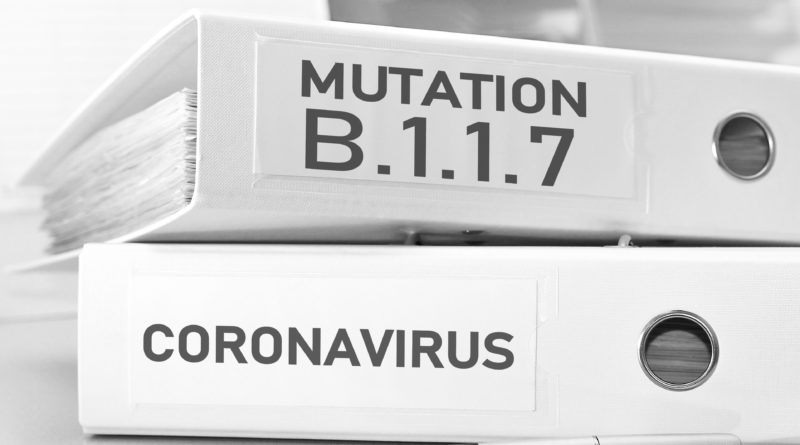Should You Be Concerned About the New COVID-19 Variant?
52,381 total views, 1 views today
In the United States, two COVID-19 vaccines are approved and currently being administered to high-priority groups. However, this COVID-19 vaccination process may be in a race against time, as a mutant COVID-19 strain first found in the U.K. has now been reported in the United States. Below, find out whether there should be concern about the new COVID-19 variant.
What is the new COVID-19 variant?
A COVID-19 variant called B.1.1.7 first emerged in southeast England in September. The B.1.1.7 variant has since been detected in numerous countries around the world, including the United States and Canada.
Another variant called B.1.351 has emerged in South Africa, and it was formed independently of the variant detected in the U.K. Currently, there have been cases of this variant outside South Africa, but the B.1.351 variant has not reached the United States.
The third variant, B.1.1.248, was detected in a routine screening by Japan’s National Institute of Infectious Diseases (NIID). The NIIID reported that four travelers from Brazil were infected with this new variant. Additionally, the B.1.1.248 variant has not been detected in the U.S.
How did the new COVID-19 variant arise?
The recent COVID-19 variants have arisen due to mutations that affect the spike proteins that stud the surface of the virus. The spikes enable the virus to attach to and enter human cells. There is some concern because these variants are more transmissible and may thus lead to a higher number of COVID-19 cases.
Where have cases of the new COVID-19 variant been reported?
In the U.S., there are 122 cases of the B.1.1.7 COVID-19 variant. Earlier this month, there were 52 cases. According to the Centers for Disease Control and Prevention, Florida has 46 reported cases, the most cases in the United States. California has the second most cases with 40, and Colorado is third on the list with six.
Is the new COVID-19 variant more dangerous?
The B.1.1.7 COVID-19 variant is more transmissible and has therefore quickly spread to other countries. By early January, cases of the B.1.1.7 variant had been identified in approximately 50 countries or territories. This includes the United States, Canada, Australia, the Netherlands, Germany, Italy, Lebanon, Singapore, Japan, and South Korea. However, there is no evidence that B.1.1.7 or any other COVID-19 variant can cause more severe cases or carry an increased risk of death compared to the original SARS-CoV-2 virus.
Will the new COVID-19 variant affect the vaccine?
The pharmaceutical companies behind the currently available COVID-19 vaccines have announced that current vaccines will be effective against COVID-19 variants. The University of Texas Medical Division conducted a small study and found that the Pfizer-BioNTech vaccine would likely still be just as effective against mutated SARS-CoV-2 viruses such as the U.K. and South African variants. However, the study comes with a caveat: It did not test the full set of mutations involving the spike protein in the rapidly spreading strains.
To make sure the spread of COVID-19 and its variants decrease, standard public health protocols remain important. This means that wearing a face mask, social distancing, hand washing, and quarantining will still be crucial to limiting COVID-19 spread and keeping people healthy.

